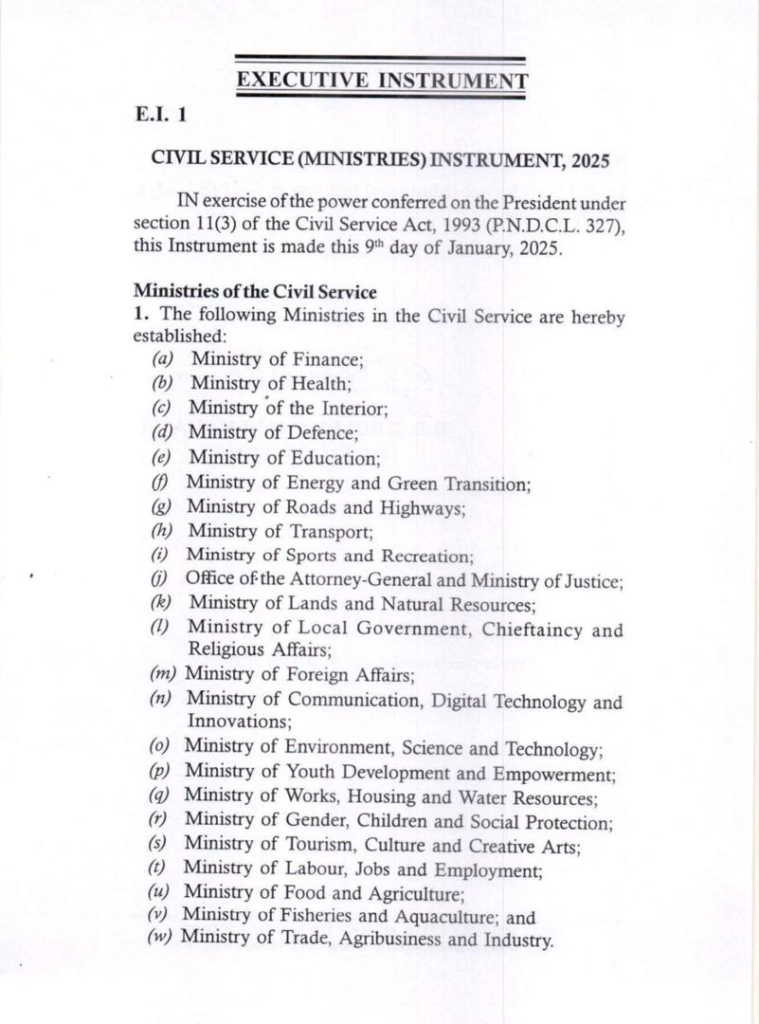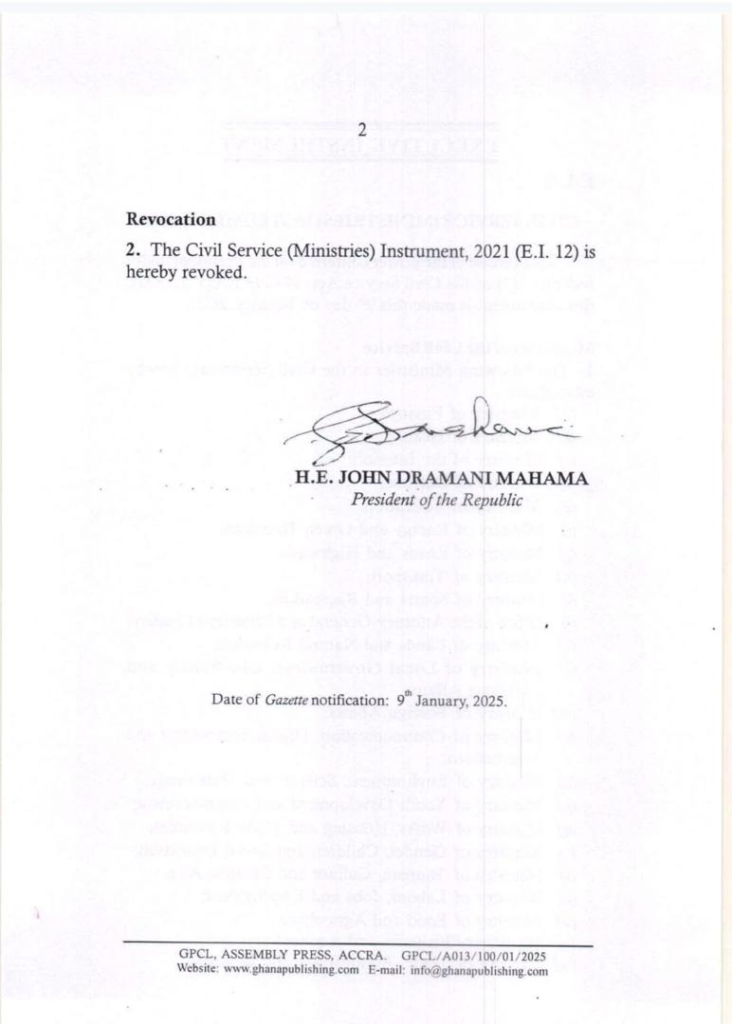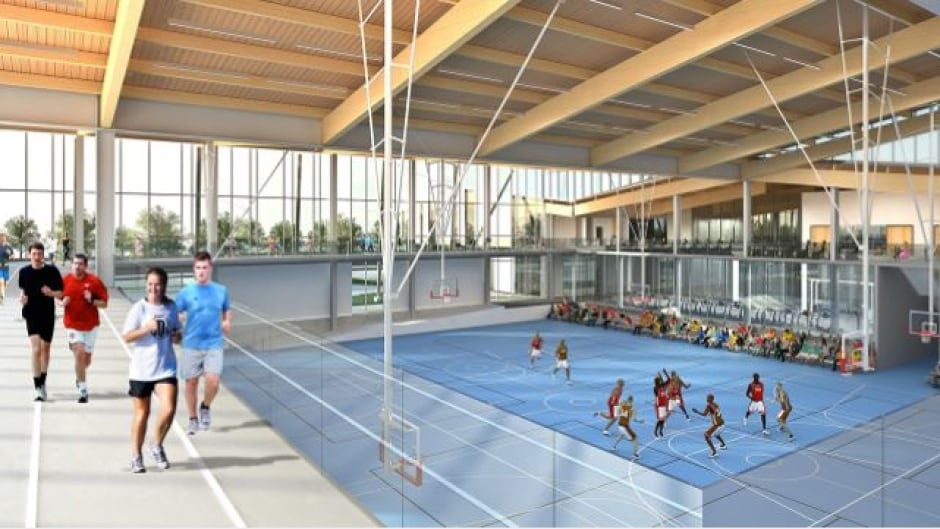By an Executive Instrument dated 9th January 2025, the Ministries of Ghana, being the bulwark of the architecture of the civil service, were reviewed and re-aligned by President John Mahama, pursuant to the Civil Service Act, 1993, PNDCL 327.
The new Ministry for Sports & Recreation
Among the notable changes is the rebranding of the Ministry of Youth and Sports to the Ministry of Sports and Recreation. This review and re-alignment appear well-reasoned, having incorporated input from technocrats with relevant experience and expertise.


It is a transformation that is both timely and promising, offering an opportunity to leverage sports as a tool for empowering Ghanaian youth and driving sustainable development.
The United Nations Sustainable Development Goals (SDGs)
In 2015, the United Nations led the global community in setting 17 Sustainable Development Goals (SDGs) to be achieved by 2030. A key strategy within this agenda is the deployment of sports as a tool for global peace and development.
Past re-alignments
Since independence, sports in Ghana have been variously aligned with education, science, culture, and youth. The recent alignment of sports with recreation, however, introduces a fresh approach that offers hope and new expectations for the youth.
Sports is predominantly patronised by the youth, making the destinies of youth and sports inextricably linked. For much of the Fourth Republic, the Ministry of Youth and Sports has been a dominant feature of this industry.
International best practices
While the United States has no Ministry of Sports, most countries worldwide have government agencies akin to sports ministries. They include France, Turkey, Serbia, Belgium, Kenya, Tanzania, India, Malaysia, Iran, Australia, and Malawi, among others. Many of these countries align sports with youth affairs, following what appears to be the international best practice.
The rationale behind aligning sports with youth is grounded in global principles, including the 37th objective of the UN SDGs, which states:
"Sport is also an important enabler of sustainable development. We recognise the growing contribution of sport to the realisation of development and peace, in its promotion of tolerance and respect, and the contributions it makes to the empowerment of women and young people, individuals and communities, as well as to health, education, and social inclusion objectives."
The correlation between Sports and Youth
Successive governments have designed various programmes and policies towards achieving the UN SDGs. Over 90% of patrons of sporting activities in Ghana are the youth. This youthful demographic reflects the strong correlation between sports and youth development.
Re-alignment of Sports with Recreation
The new alignment of sports with recreation shifts focus from youth to health, well-being, and leisure. Countries like New Zealand, Samoa, and Zimbabwe have similar ministries combining sports with recreation. Ghana’s new Ministry for Youth Development and Empowerment will now serve as a hub for youth-centred initiatives.
Health and well-being are critical to national prosperity. During the tenure of two former sports ministers, Messrs Arnold Quainoo and E.T. Mensah, Keep-Fit Clubs were instrumental in promoting fitness among adults and the middle class.

However, the growing prevalence of lifestyle diseases like hypertension and diabetes among younger populations calls for a national fitness initiative.
A designated monthly national fitness day could be a worthy consideration. A national fitness initiative may require the collaboration of the Ministry of Health.
Sports is a big business
Globally, sports has transitioned into a multi-billion-dollar industry, and Ghana is no exception. The new Ministry must acknowledge that sports is no longer a mere recreation but a significant business sector.
In 1993, recognising football’s economic potential, the Ghanaian government partnered with the Ghana Football Association to establish a Professional League Board (PLB), marking a shift towards professionalising premier league football.
Former Sports Minister E.T. Mensah’s mantra, “Sports is a big business,” remains as relevant today as it was over three decades ago. It is not a mere rhetoric.
Several government initiatives towards the achievement of this policy led to two major steps: first, a repeal of the Sports Decree, 1976, SMCD 54, and an enactment of the Sports Act, 2016, Act 934.
The government needs to drive the agenda of commercialisation and promotion of employment and job opportunities in the sports sector.
Benefits of sports
Sports generates thousands of private-sector jobs, especially for the youth.
Though the data surrounding the number of people directly or indirectly employed by the football sub-sector of sports in Ghana, it is estimated that about 20,000 are beneficiaries.

This industry also enables young people to channel their energies productively, reducing the risk of delinquency and fostering a sense of purpose.
In addition to personal development, sports creates job opportunities for young people, spanning various roles such as players, coaches, administrators, and media personnel. The professionalisation of football, for instance, has opened avenues for youth employment and entrepreneurship.
Track and field, arm wrestling, boxing, tennis, table tennis, and numerous disciplines engage Ghanaian youth.
This new Ministry must consider incentives for private investment in sports to expand employment opportunities. Key aspects like professionalism, sponsorship, standards, and regulation require urgent attention to maximise the sector’s potential.
Foreign Exchange Earnings
Beyond recreation, sports is an engine for economic empowerment and a pathway to global opportunities.
I admit we would need the right data to appreciate its contribution to the inflow of foreign exchange into the country, but one cannot deny the fact that since the mid-1980s, Ghana has “exported” a good number of players to clubs in Europe for millions of foreign exchange as transfer fees.
FIFA regulations require five per cent of the transfer fee to be paid to the club(s) that nurture(s) a talent between the ages of 12 and 21.
Hence, the moves made by Abedi Pele, Michael Essien, Sulley Muntari, Stephen Appiah, Asamoah Gyan (who at one point was the world's eighth-highest-paid player), Kwadwo Asamoah, Ayew brothers, Anthony Annan, etc., were a direct investment into Ghana’s economy.
When Thomas Partey was transferred from Atletico Madrid to Arsenal for a whopping £50m, five per cent of that money came directly to the clubs that contributed to his development.

Other transfers of Ghanaian football players of repute include Mohammed Kudus, Ibrahim Osman, Kamaldeen Suleman, and Ernest Nuamah, just to mention a few.
These international transfers have generated significant foreign exchange for the nation and for clubs to develop more talent.
When these players return to the country, they are here with foreign exchange. No matter how little, a foreign exchange’s impact on our economy should be appreciated.
Furthermore in 2008, the Ghana Football Association signed a five-year contract of $22.5m with Glo Mobile Limited for sponsorship of the Black stars and Ghana Premeir League.
Infrastructure development
Through the hosting of international sporting tournaments, the infrastructure stock of the country has been enhanced, the most recent being the addition of sporting facilities and roads in Borteyman and the University of Ghana.

While initiatives like constructing AstroTurf pitches are commendable, more efforts are needed to preserve and expand community spaces for recreation and talent development. For instance, addressing the loss of playing fields in areas like Nima, which has produced football legends like Mohamed Polo and Mohammed Kudus, is essential for sustaining this talent pipeline.
Unity and national identity
This industry holds an unparalleled ability to unite people across political, ethnic, and religious divides. The unwavering support for Ghana’s national teams, particularly the Black Stars, during international competitions, exemplifies how sports foster national unity.
How can anyone forget how Ghanaians stayed awake all night to watch Azumah Nelson’s boxing bouts and rallied behind the national football teams? Sports bring Ghanaians together like no other endeavour.

Another variant of national unity can be promoted through the institution of community, district, regional, and national games across different disciplines of sports.
Research in South Africa has shown that during epic football games between rivals Orlando Pirates and Kaizer Chiefs, crime rates have dropped significantly because many criminals are at the stadium watching the game.
Tourism and global recognition
Sports promotes Ghana’s image on the global stage, serving as an effective tool for marketing the country. International tournaments have not only showcased Ghana’s sporting prowess but also boosted its tourism and cultural appeal.
The exposure garnered through sporting achievements has elevated the nation’s profile, clearing ambiguities about its identity and distinguishing it from similarly named countries like Guyana.
Through sports, some non-Africans have appreciated Ghana as a sovereign state, separate and distinct from Guyana in Central America. Investments in sports can position Ghana as a leading tourist and investment destination, as seen in countries like Qatar and Morocco.
A shift towards Recreation and Well-being
The alignment of sports with recreation is a novel approach, shifting the focus to health and well-being. Recreational activities such as keep-fit clubs, which thrived in the past, can be revitalised to combat rising lifestyle diseases like hypertension and diabetes. Designating a national fitness day monthly could further encourage healthy living among Ghanaians of all ages.

However, this focus on recreation should not overshadow the critical role of sports in driving development. The Ministry of Sports and Recreation must collaborate closely with the newly created Ministry for Youth Development and Empowerment to ensure a balanced approach that maximises the potential of both domains.
Conclusion
The re-alignment of the Ministry of Sports and Recreation is a unique opportunity to harness the transformative power of sports for national development. By prioritising youth development, fostering unity, and tapping into sports’ economic potential, Ghana can achieve sustainable development.
Sports is not just recreation; it is a tool for empowerment, unity, and economic growth. The challenge lies in ensuring that this re-alignment delivers on its promise to transform the lives of Ghanaians while contributing to national prosperity.
Latest Stories
-
Meghan Netflix show delayed over LA wildfires
20 minutes -
Kwesi Nyantakyi: How the new Sports & Recreation Ministry can transform the Youth
3 hours -
Barca fights back to beat Real Madrid 5-2 for Spanish Super Cup success
4 hours -
Photos: Mahama joins National Prayer and Thanksgiving Service
4 hours -
Mahama reaffirms commitment to education reform, tackles immediate feeding challenges in SHSs
5 hours -
Vetting of ministerial nominees begins on Monday, January 13
5 hours -
Ghanaian, Prof Wisdom Tettey is Carleton University’s 17th President and Vice-Chancellor in Canada
5 hours -
National Cathedral can be built at a reasonable cost without state funds – Mahama
6 hours -
13-year-old girl survives alleged ritual murder attempt in Eastern Region
6 hours -
Anti-corruption campaigner lauds ORAL, commends Mahama
6 hours -
Türkish Ambassador to Ghana congratulates Vice President Opoku-Agyemang
6 hours -
GUTA dissociates itself from its president’s comment urging gov’t to retain E-levy
6 hours -
My victory is the manifestation of the will of God, says Mahama
6 hours -
We’ll strengthen the fight against corruption – Mahama
6 hours -
National Cathedral project expenditure to be probed soon – Mahama
6 hours

